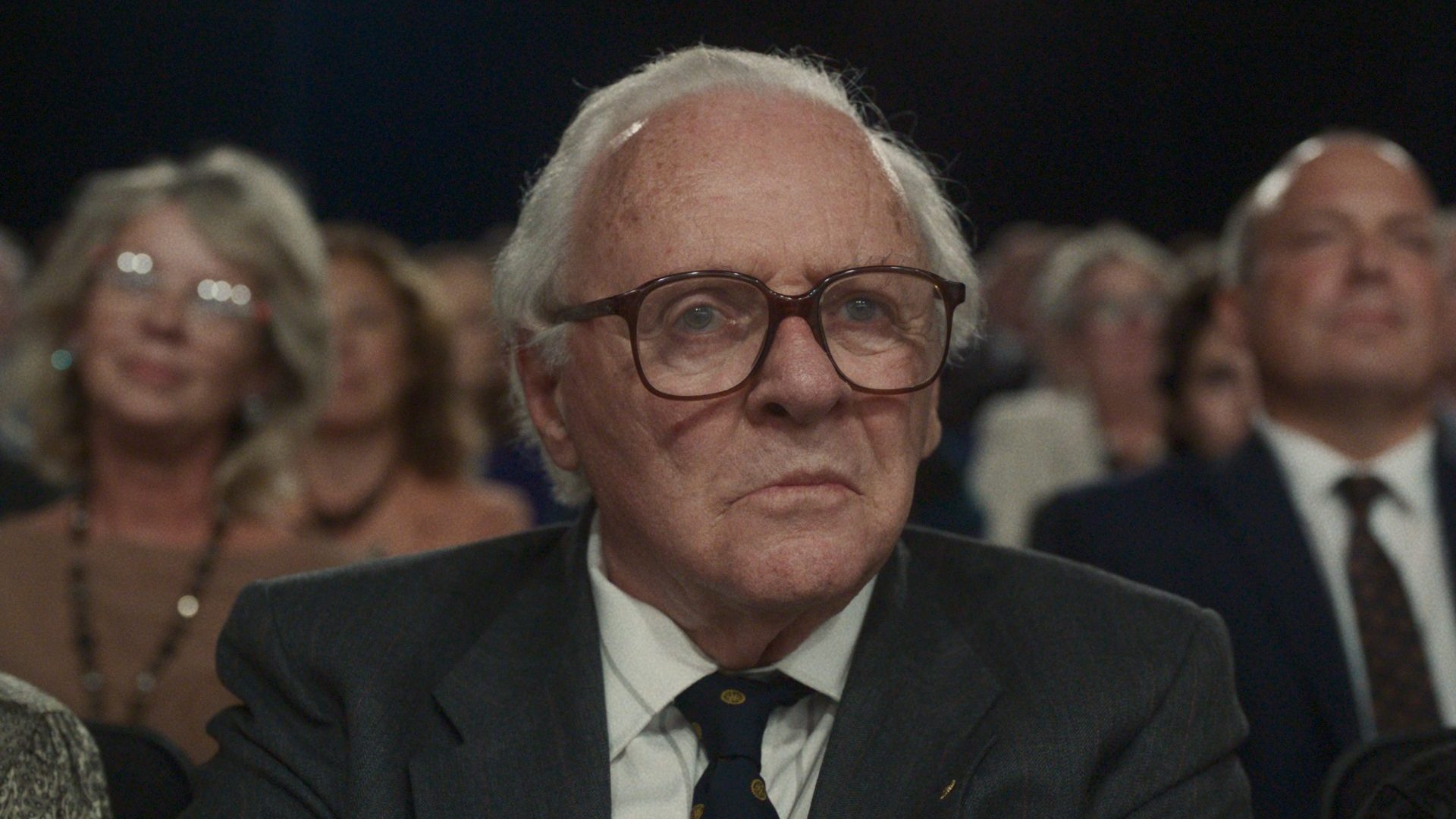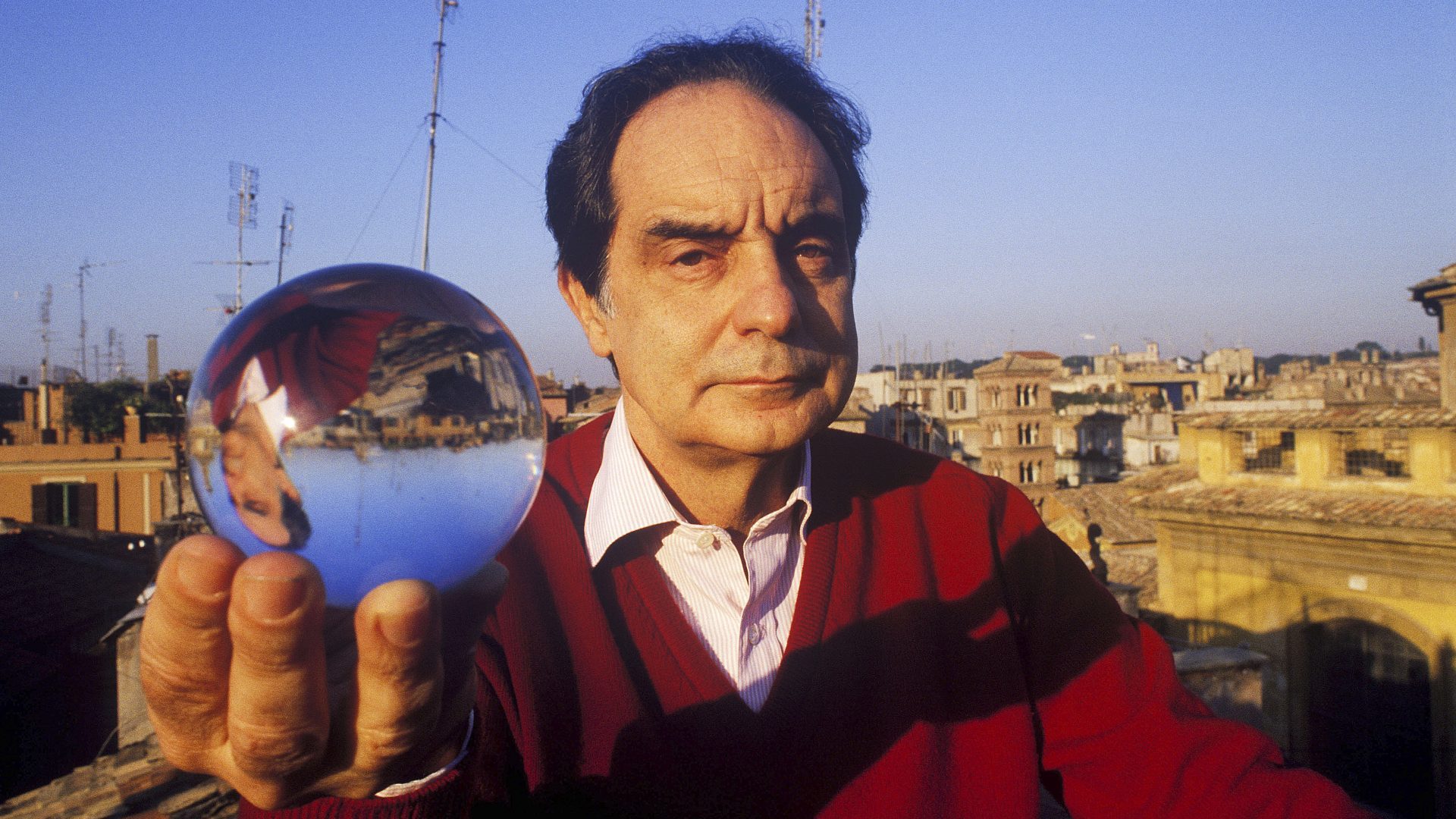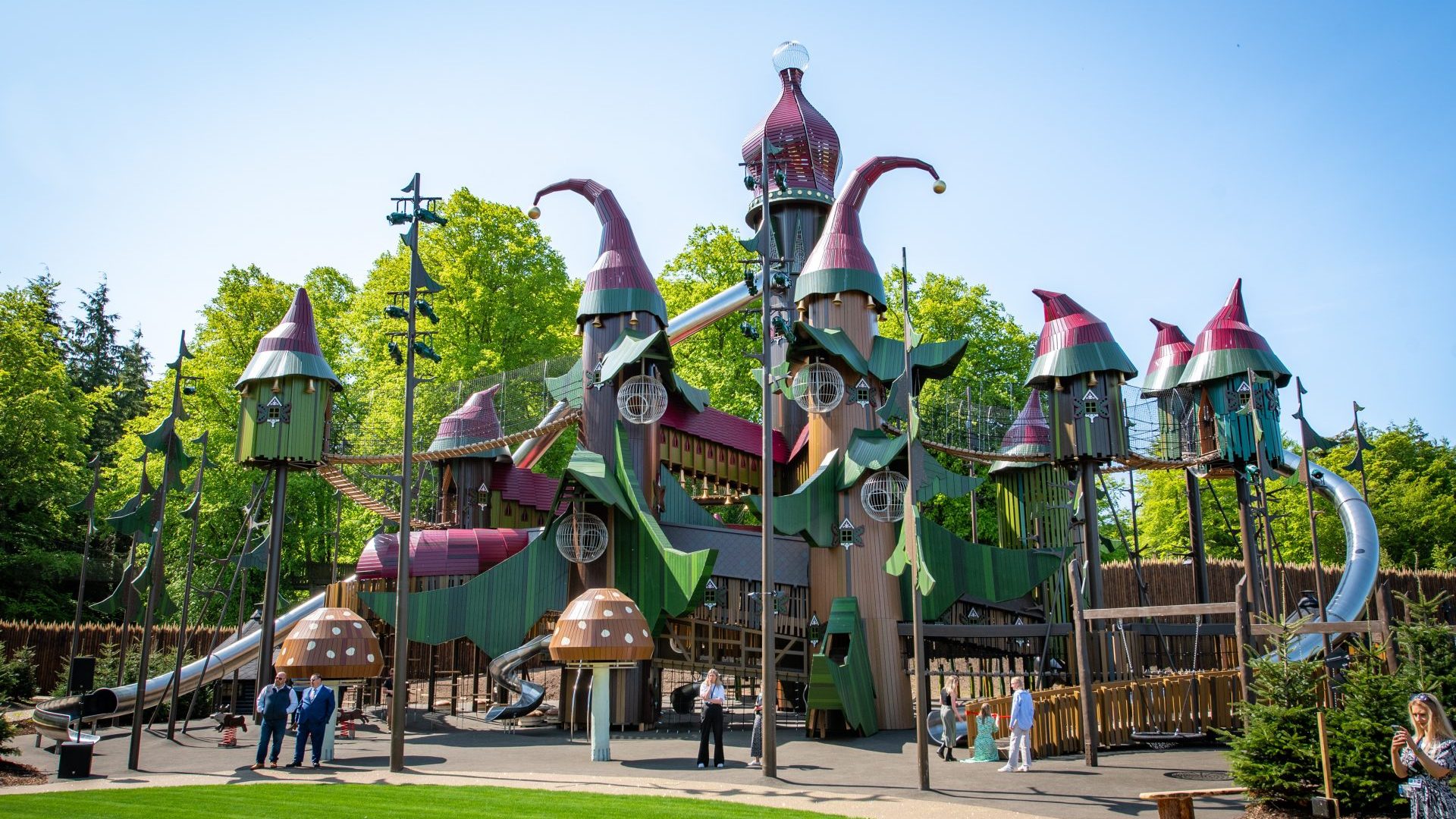It was quite the most extraordinary moment of my 20 years attending London Film Festival galas. At the end of One Life, in which a buttoned-up Sir Anthony Hopkins had me in tears as Sir Nicholas Winton, director James Hawes appeared on stage at the Royal Festival Hall to say that 11 of the people saved from the Holocaust by Winton’s actions in Prague in 1938 were in the audience. He asked them to stand up. Which they did, including the campaigner Lord Alfred Dubs and the fundraiser Lady Milena Grenfell-Baines.
And then, Hawes asked for anyone else in the room who was alive today because of those actions to stand, and dozens more did so, young and old, generations of survivors.
This replay of a scene from the film – the 1988 edition of That’s Life in which the retired (and non-Jewish) Winton’s heroism in organising kindertransport for refugee children fleeing the Nazis was brought to national attention – would have been moving in any circumstances. In these times, it felt especially poignant.
Sometimes, cinema can just put a story up there that resonates beyond the screen, or its director’s vision and style, and One Life, a tale of British moral decency in the face of European turmoil, is simply that.
Such is the confusion and chaos of the current war and refugee situation around the world that no one in that screening could have avoided finding connections or seeing themselves in Nicky Winton and the value of one life saved.
Johnny Flynn plays Winton in flashbacks to Prague, where he and other British colleagues organised trains to London and assigned the children foster families. Perhaps necessarily for the story it tells, the film isn’t flashy or experimental in any way, but very carefully crafted and building to an emotionally charged climax. And what an extraordinary event this screening was, too.
Despite its roots in central Europe, One Life was perhaps the most straightforwardly British film at this year’s festival. And though there were 170 movies to choose from, a bewildering array from all around the world, it was hard not to have British film foremost in your mind this time, especially with the dimmed star wattage of this year’s festival in the wake of Hollywood strikes.
For the British critic, the LFF is a difficult festival to get to grips with.
At Cannes or Venice, it’s possible to immerse yourself in the intensity of the festival bubble and the loneliness of your hotel room, but our hometown shindig, however, must be tackled alongside family schedules, Ocado deliveries and the myriad cultural distractions of big football matches, fashion shows and art fairs – as well as the ever-easy comfort of the sofa and telly.
It is, I pondered as I walked over Hungerford Bridge to the South Bank for the tenth time last week, perhaps a much truer reflection of the place cinema holds in our daily lives now, something that requires effort and fortitude, to battle tube trains and night buses and all the city can hurl at you on your way to the big-screen experience.
So I suppose the question I’m really asking myself is: did the films making their UK bows at the LFF have enough about them to get you out of your sofa? Did they make up for the fact that, although the US writers’ strike came to an end on the eve of the festival, the actors were still striking and thus very few turned up on the red carpet? (Not to diminish the SAG-AFTRA union’s solidarity, but I suspect some of the biggest stars are, for once, quite glad not to dress up for hours in order to run the quickfire gauntlet of microphones, glaring bulbs and “tell us about your character” questions).
As well as returning Brits Emerald Fennell and Daniel Kaluuya (promoting The Kitchen, which he co-wrote and co-directed), this LFF saw some of Britain’s feted international award winners “coming home”.
Our film-makers are not, it must be said, afforded the adulation of our footballers, who get greeted at airports following even mildly successful exploits on foreign fields. But we have had some noteworthy wins at Cannes and Venice of late, including for debut feature maker Luna Carmoon and her highly distinctive and instinctive film Hoard, which carried off three minor but important prizes at Venice last month.
Similar to this year’s British indie hit Scrapper (also the debut of a young female director, Charlotte Regan), it concerns a teenage girl collecting scraps as a memorial to her mother. Hoard is a much grimier proposition, though, a very unusual story indeed, about the impulse to hoard rubbish, the detritus forming some kind of dialogue between characters, a physical and olfactory manifestation, even infestation, of love.
You might, quite literally, turn your nose up at this film. I had to look away a few times, but its stench has stayed with me, as has the remarkable performance of Saura Lightfoot Leon in the lead role. It’s a film of memorably mucky moments, panting with sexual, animalistic tension.
Hoard is so unusual yet it does seem to be part of something new in British cinema. Following on from the success of last year’s Aftersun by Charlotte Wells, I’ve already mentioned the female-directed Scrapper, which won an award at Sundance at the beginning of this year, this LFF also saw the UK directing debut of that film’s cinematographer Molly Manning Walker, with her film How To Have Sex, capturing the fetid atmosphere of a group of teenage girls on a Mediterranean partying package holiday, and the lads in the room next door.
These female film-makers have emerged as part of a concerted effort from funders such as the BFI and BBC Films (bodies now lead respectively by Mia Bays and Eva Yates) to champion stories from a certain milieu – you might call it working class, coming of age and female but that doesn’t always quite fit.
For example, Poor Things, which I wrote about from Venice and which won the top prize of the Golden Lion there, played at the LFF. Even though it’s directed by a Greek man, Yorgos Lanthimos, and stars Hollywood Oscar winner Emma Stone, it is a British story featuring a lot of flesh and sex, presenting a female physicality that’s confronting and challenging.
I wonder just how popular these films can be – Aftersun and Scrapper have already proved themselves with robust business at boutique box offices, and Poor Things is already tipped for Oscar nominations so there’s clearly something audiences want in this, something that needs reflecting and representing on screen.
That same emphasis on dramatic feminine physicality was there, too, in the extraordinary Earth Mama, which I watched without knowing it was British at all, mainly because it’s set in San Francisco’s Bay Area and is about a pregnant black woman (a revelatory Tia Nomore) confronting the foster care system, adoption and drug addiction.
But British it is, produced by Film4 and Academy Films, and written and directed by London-born, Miami-educated Savanah Leaf, who represented Team GB in volleyball and beach volleyball at the 2012 Olympics before becoming a video-maker.
How’s that for a story arc? Are there any other Olympians who made movies? I know Johnny Weissmuller as Tarzan, and Buster Crabbe who was Flash Gordon, and I think Goldfinger’s Oddjob, Harold Sakata, was a weightlifter before taking up competitive bowler hat throwing… but from what I saw in Earth Mama, Savanah Leaf is a proper film-maker who might go for gold one day.
I must mention several others that I saw, including Sally El Hosaini and James Krishna Floyd’s beautifully tender film Unicorns, about a tough Essex car mechanic who, to his own shock, falls in love with a “gaysian” drag act called Aysha, a film so heartfelt it hurts. With gorgeous performances by Ben Hardy and newcomer Jason Patel, and an insight to a south Asian British subculture I never knew existed, I loved it.
Again, sex, flesh and the body play a big part in Unicorns, as they do in Andrew Haigh’s haunting gay romance All of Us Strangers, which features the stellar hot pairing of Andrew Scott and Paul Mescal in a partially inhabited, new-build London apartment block. If there was an award for festival film that made the most people cry – the Golden Teardrop? – this could win and it should find some joy in awards conversations, particularly for Haigh’s supernatural screenplay and Scott’s wonderfully naturalistic performance in it, as a screenwriter literally revisiting his childhood for trauma and inspiration.
Amid all the sexuality and female-driven storytelling, it was good to see that British film still has room for the likes of Gassed Up, a high-octane study of black masculinity, grime and gang culture from the producers of Boiling Point, stressfully, kinetically directed by George Amponsah. It’s about a south London “ped” gang who whizz about on their scooters stealing phones before, disastrously, moving on to jewellery heists and getting caught up with Albanian mobsters.
It’s sadly possible that not many of these films, stylish and inventive and thoughtfully conceived though they are, will claim huge audiences at cinemas. But big things are expected of Saltburn, which was the LFF opening night film, directed by Promising Young Woman Oscar screenplay winner Fennell who, let’s be honest, isn’t exactly working class but who skewers wealth and privilege in her follow-up movie and also slaps a good deal of flesh and class confrontation on the screen.
It seemed to be a divisive movie among first night attendees, but I liked it, the story, set in 2006, of an Oxford student called Oliver (Irish actor Barry Keoghan, Oscar-nominated last year for The Banshees of Inisherin) desperately envious of Felix, a handsome aristocratic boy in his college who invites him to his country pile, Saltburn, for the long summer. There, lowly Ollie begins to ingratiate himself with Felix’s batty posh family, none more batty than his ex-model mum played quite perfectly by Rosamund Pike.
The film might resemble something you’ve seen before (as well as having a flavour of The Talented Mr Ripley, it’s a country house drama – so a dash of Brideshead Revisited, a soupçon of The Go-Between, a dusting of Gosford Park and a sprinkle of those Hopkins-starring Merchant Ivories Howard’s End or The Remains of the Day) but it’s nicely ramped up to give the mainstream a bit of a jolt. Saltburn is a bit wild and debauched, teetering into fresh and malicious fun right to the finale.
Long may British film reinvent itself in all these ways.




